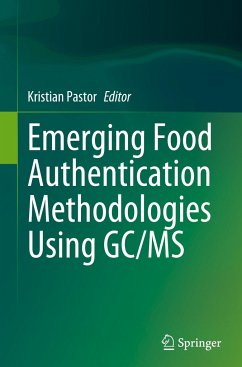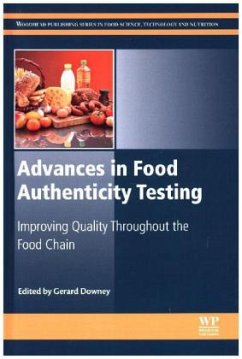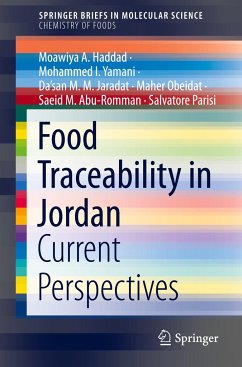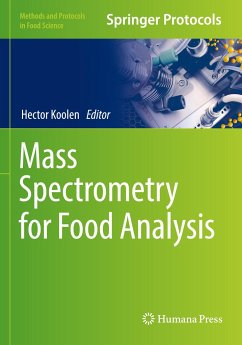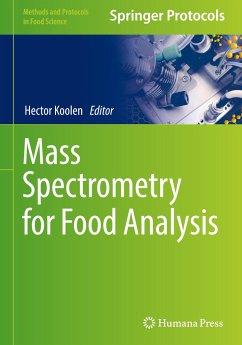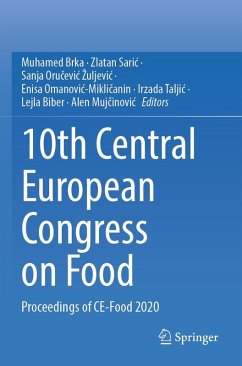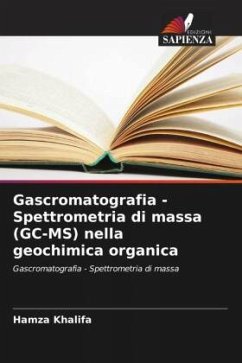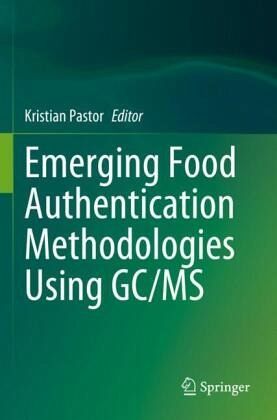
Emerging Food Authentication Methodologies Using GC/MS
Versandkostenfrei!
Versandfertig in 6-10 Tagen
136,99 €
inkl. MwSt.

PAYBACK Punkte
68 °P sammeln!
This edited book provides an overview of existing and emerging gas chromatography/mass spectrometry (GC/MS) based methods for the authentication and fraud detection in all major food groups and beverages.Split in four parts, the book opens with a comprehensive introduction into the GC/MS technique and a summary of relevant statistical and mathematical models for data analysis. The main parts focus on the authentication of the main food groups (cereals, dairy products, fruit, meat, etc.) and beverages (e.g., coffee, tea, wine and beer). The chapters in these sections follow a distinct structure...
This edited book provides an overview of existing and emerging gas chromatography/mass spectrometry (GC/MS) based methods for the authentication and fraud detection in all major food groups and beverages.
Split in four parts, the book opens with a comprehensive introduction into the GC/MS technique and a summary of relevant statistical and mathematical models for data analysis. The main parts focus on the authentication of the main food groups (cereals, dairy products, fruit, meat, etc.) and beverages (e.g., coffee, tea, wine and beer). The chapters in these sections follow a distinct structure describing the nutritional value of the product, common fraud practices, economic implications and relevant biomarkers for the authentication process, such as volatile compounds, fatty acids, amino acids, isotope ratios etc. The final chapter provides an outlook on where the methodologies and the applications may be heading for.
Food fraud is serious problem that affects foodindustries of all kinds, which is why food authentication plays an increasingly important role. This book aims to serve as a knowledge base for all researchers in academia, regulatory laboratories and industry employing GC/MS for food analysis. Due to its comprehensive introduction and consistent structure, it can also serve as an excellent resource for students in food science, food technology, food chemistry and nutrition.
Split in four parts, the book opens with a comprehensive introduction into the GC/MS technique and a summary of relevant statistical and mathematical models for data analysis. The main parts focus on the authentication of the main food groups (cereals, dairy products, fruit, meat, etc.) and beverages (e.g., coffee, tea, wine and beer). The chapters in these sections follow a distinct structure describing the nutritional value of the product, common fraud practices, economic implications and relevant biomarkers for the authentication process, such as volatile compounds, fatty acids, amino acids, isotope ratios etc. The final chapter provides an outlook on where the methodologies and the applications may be heading for.
Food fraud is serious problem that affects foodindustries of all kinds, which is why food authentication plays an increasingly important role. This book aims to serve as a knowledge base for all researchers in academia, regulatory laboratories and industry employing GC/MS for food analysis. Due to its comprehensive introduction and consistent structure, it can also serve as an excellent resource for students in food science, food technology, food chemistry and nutrition.



